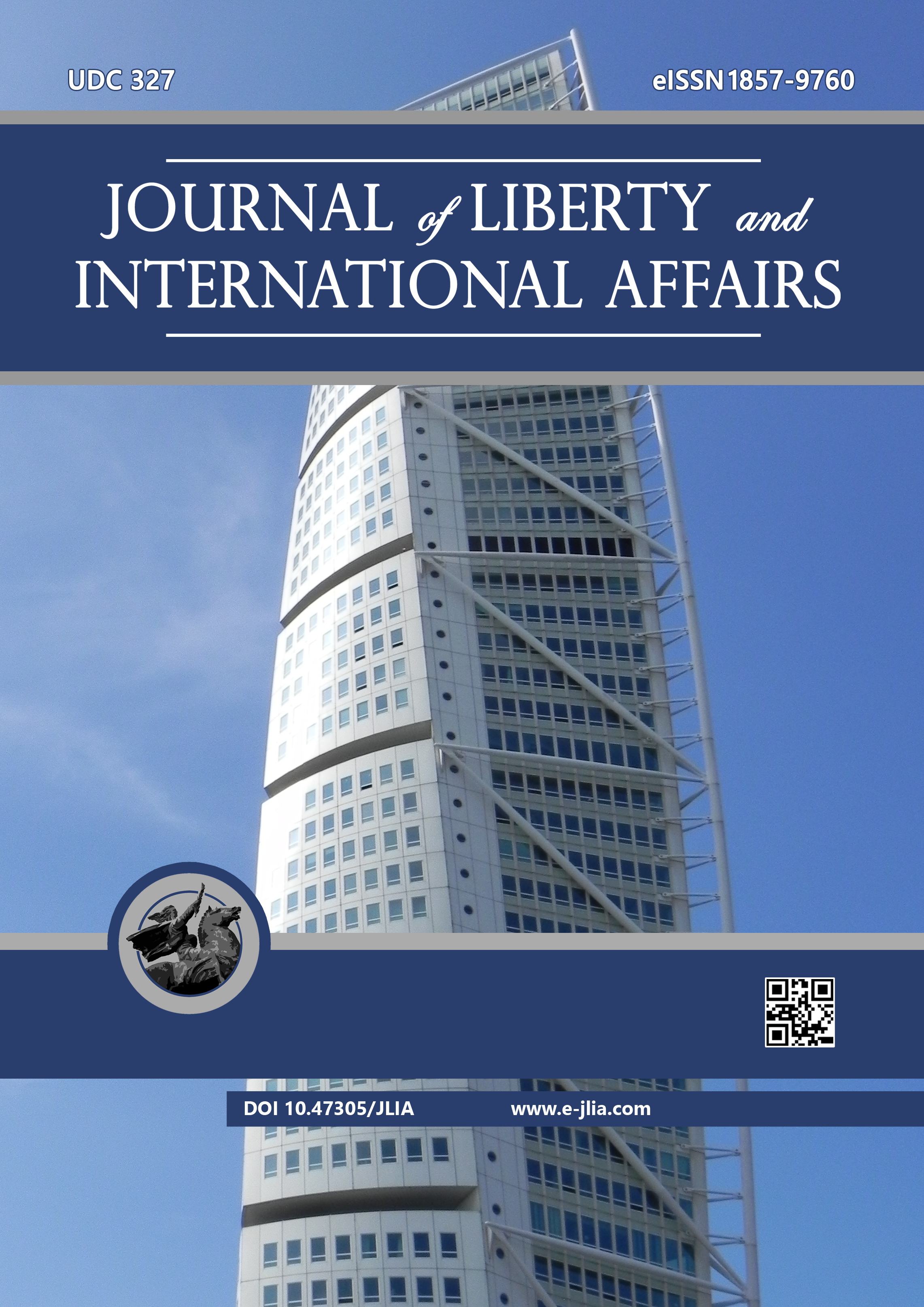ASSESSING THE EFFECTS OF TRADE LIBERALIZATION WITH THIRD COUNTRIES: THE CASE OF THE EURASIAN ECONOMIC UNION
ASSESSING THE EFFECTS OF TRADE LIBERALIZATION WITH THIRD COUNTRIES: THE CASE OF THE EURASIAN ECONOMIC UNION
Author(s): Simon SngryanSubject(s): Politics / Political Sciences, Politics, Economy, Law, Constitution, Jurisprudence, National Economy, Supranational / Global Economy, Business Economy / Management, International Law, Political Theory, Political Sciences, Civil Society, Governance, Economic policy, Environmental and Energy policy, Government/Political systems, Welfare systems, Political economy, Politics and society, Methodology and research technology, Law on Economics, Inter-Ethnic Relations, Financial Markets, Public Finances, Fiscal Politics / Budgeting, Marketing / Advertising, Tourism, Socio-Economic Research, Geopolitics, Commercial Law, Transport / Logistics
Published by: Institute for Research and European Studies - Bitola
Keywords: Liberalization; Openness; Integration; Third Countries; EEU; Member States
Summary/Abstract: https://www.doi.org/10.47305/JLIA2282035s The processes of objectively conditioned integration in the economic, political, legal, and institutional spheres of the Eurasian Economic Union (EEU) Member States took place step by step, starting from preferential trade agreements, passing to the customs union, the common market and other stages of integration. This process is accompanied by the gradual deepening of trade liberalization with potential partners. The selection of potential partners should be carried out through a comprehensive and detailed analysis of the structure and volumes of foreign trade of the EEU Member States (Armenia, Belarus, Kazakhstan, Kyrgyzstan, Russia) with third parties, their markets structure, existing customs regulation, trade barriers, and possible export potential. The research evaluated the EEU's possible enlargement effects on the Member States' economic indicators. The research aimed to assess the possible consequences of EEU expansion and signing free trade agreements, considering Pakistan, Korea, and Malaysia as potential trade partners. Modeling the effect of an FTA assumes horizontal zeroing of tariffs between partners. Then, using the GTAP model, a new state of general equilibrium was calculated corresponding to the changed parameters of customs and tariff regulation. In this case, most variables, such as change in GDP, production output, and export-import volumes, were estimated, manifesting the economic effect of trade liberalization.
Journal: Journal of Liberty and International Affairs
- Issue Year: 8/2022
- Issue No: 2
- Page Range: 35-46
- Page Count: 12
- Language: English

